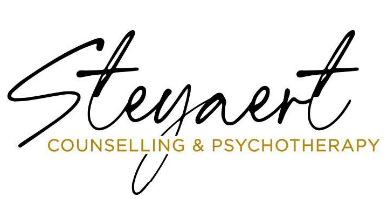
Solution-Focused Brief Therapy (SFBT) in London & Burlington, Ontario
In-Person, Virtual and Phone Call Appointments Available No Waitlist | Free Parking
A Fresh, Forward-Looking Approach to Therapy
Are you feeling stuck, tired of rehashing problems without seeing progress? Solution-focused brief therapy (SFBT) might be the fresh approach you need to move forward. This modern, short-term form of psychotherapy shifts the focus from what’s wrong to what’s possible.
At Steyaert Counselling, our warm and skilled team of therapists uses SFBT to help you envision a brighter future and take steps toward it. We offer solution-focused therapy as one of our many effective therapeutic approaches to support positive change. With no waitlist and flexible virtual or in-person options, we’re here when you’re ready.
What is Solution-Focused Brief Therapy?
Solution-focused brief therapy (also known as solution-focused psychotherapy or solution-based therapy) is a short-term, goal-oriented therapeutic approach that emphasizes solutions rather than problems. As the name suggests, this approach is future-focused and positivity-driven.
Instead of delving into a long history of issues, you and your therapist concentrate on what you want to achieve and how to get there. SFBT was originally developed in the 1980s as a hopeful, evidence-based method to help people create meaningful change more quickly than traditional talk therapy.
In SFBT, your strengths, resources, and past successes take center stage. The idea is that you already have the seeds of the solution within you – the therapy simply helps you identify and nurture them. Sessions are typically conversational and brief, often lasting only a limited number of meetings (more on that below).
Throughout this solution-focused approach, the therapist acts as a collaborator and guide, helping you stay focused on your desired future rather than dwelling on past pains. The tone is optimistic and empowering: you’ll be encouraged to recognize what’s working in your life and do more of it.
How Does Solution-Focused Therapy Work?
In a solution-focused therapy session, you set the course by defining clear goals. Right from the start, your therapist will ask questions to help pinpoint what you really want to change or achieve. Once that “preferred future” is identified, the conversation centers on how to make it happen.
Here are a few key techniques and elements you’ll experience in SFBT:
Goal Setting:
Together with your therapist, you’ll describe your best hopes for therapy. For example, “What would you like to see differently in your life after these sessions?” By articulating concrete goals, you create a clear target to work toward.
The Miracle Question:
This famous SFBT exercise invites you to imagine your life as if a sudden miracle solved your challenges overnight. A therapist might ask, “If you woke up tomorrow and all your problems were gone, what would be different?” You would then explore in detail what that better tomorrow looks like – how you would feel, behave, and notice change in others.

Scaling Questions:
Another helpful tool in solution-focused therapy is using simple 0-to-10 scales to measure progress or confidence. Don’t be surprised if your therapist asks something like, “On a scale of 0 to 10, how anxious are you today?” or “If 0 is the worst and 10 is your goal achieved, where are you now?” Follow-up questions might be, “What makes it a 4 now and not a 2?” or “What would it take to move from a 4 to a 5?” These scaling questions help break down big goals into manageable steps. They also highlight even small improvements – a change from 4 to 5 on the scale is progress to celebrate!
Finding “Exceptions”:
In SFBT, your therapist will also ask about times when your problem is less intense or absent, even small moments. These are called “exceptions.” Exploring exceptions means looking at when things are going right: “Tell me about a time last week when you felt a little happier,” or “What was different on a day when your stress was lower?” By examining what’s happening during your better moments, we uncover hidden strategies and strengths you already possess. You can then do more of what works.
Collaborative Conversations:
Solution-focused therapy is very much a team effort between you and your therapist. You are the expert on your own life, and the therapist brings expertise in guiding change. Sessions are like brainstorming meetings where you generate ideas for solutions, and we refine and support them. The therapist will ask a lot of questions, actively listen, and encourage you to notice positives. It’s a pragmatic, forward-looking dialogue that keeps you moving toward your goals.
Throughout this process, the atmosphere remains encouraging and focused. Little by little, session by session, you build a picture of your desired future and start taking concrete steps to get there. Many clients find these conversations not only productive but also refreshing – it’s a relief to talk about how things can get better rather than analyzing why they went wrong.
Benefits of Solution-Focused Brief Therapy
- Quicker Results, Short-Term Focus: Many clients experience positive change in as few as 4 to 8 sessions. It’s a time-efficient and cost-effective option.
- Positive and Empowering: SFBT focuses on what’s working, building your confidence and helping you feel capable of change.
- Clear Goals and Direction: You’ll always know what you’re working toward and can track your progress session to session.
- Action-Oriented and Practical: You’ll leave sessions with real strategies and steps to try in your daily life.
- Adaptable to Many Issues: SFBT helps with anxiety, stress, depression, relationship conflict, transitions, grief, and more.
- Can Complement Other Therapies: Our therapists may integrate SFBT with CBT, DBT, or other methods to enhance your care.
Who Can Benefit from Solution-Focused Therapy?
SFBT is a versatile approach that supports many different people and situations, including:
- Adults managing stress, anxiety, burnout, depression, or low self-esteem
- Couples and families looking to improve communication and strengthen their connection
- Children and adolescents who prefer practical, strengths-focused conversations
- Anyone feeling stuck or who hasn’t found success with other approaches
- People seeking a collaborative, goal-driven process that emphasizes strengths and forward movement
If you’re curious whether SFBT is right for you, we’d be happy to help you decide.
How Long Does Solution-Focused Therapy Last?
Solution-focused brief therapy is intentionally designed to be short-term. Most clients see results in just 4–8 sessions, with some achieving their goals in as few as 3. Depending on your situation, therapy might last up to 12 sessions or longer if needed.
Because SFBT is goal-driven, you and your therapist will regularly review progress to ensure therapy stays focused and effective. Many clients leave therapy with new tools and confidence to apply what they’ve learned on their own.
At Steyaert Counselling, we also make it easy to get started – there’s no waitlist, and you can book online or in-person today.
How is SFBT Different from Other Therapies?
SFBT isn’t about analyzing your past in detail. It’s about building your future.
While many therapies explore root causes and deep emotional processing, Solution-Focused Brief Therapy emphasizes action, collaboration, and practical results. It’s not better or worse – it’s simply a different style.
If you’re looking for a hopeful, efficient, and strength-based option, SFBT might be a great fit.
Can SFBT Be Combined with Other Therapies?
Yes. At Steyaert Counselling, we often integrate SFBT with:
- Cognitive Behavioural Therapy (CBT)
- Dialectical Behaviour Therapy (DBT)
- Acceptance and Commitment Therapy (ACT)
SFBT blends well with other evidence-based approaches. It adds structure, focus, and momentum to your work in therapy and helps you stay oriented toward progress.
Ready to Start Focusing on Solutions?
Life doesn’t have to stay stuck. With Solution-Focused Brief Therapy, you can begin moving forward today with guidance, care, and clarity.
We offer SFBT:
- In London, Ontario (in-person)
- In Burlington, Ontario (in-person)
- Across Ontario (virtual online therapy)
Steyaert Counselling’s Approach to Solution-Focused Brief Therapy
Solution-focused brief therapy offers an empowering and efficient approach to therapy, focusing on clients’ strengths and resources to create positive change. Whether you’re seeking therapy for yourself or considering it for a loved one, understanding the basics of SFBT can help you make an informed decision. If you believe SFBT is the correct approach for your psychotherapy but don’t know where to start, you can speak with Hannah at our London office or Hailey at our Burlington office today.
Solution-Focused Therapy in London, Ontario
Hannah has utilized SFBT therapy in her work with dozens of clients in therapy sessions. Don’t hesitate to contact her office in East London, Ontario, for more information.
Solution-Focused Therapy In Burlington, Ontario
Hailey has also utilized SFBT therapy in her work with dozens of clients in therapy sessions. Don’t hesitate to contact her office in Central Burlington, Ontario, for more information.
